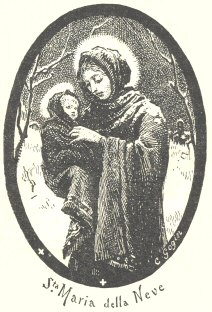Transcribed from the 1913 A. C. Fifield edition by DavidPrice,
ALPS AND SANCTUARIES
Of Piedmont And the Canton Ticino
(Op. 6)
By Samuel Butler
Author of“Erewhon,” “Life and Habit,” “TheWay of All Flesh,” etc.
New and Enlarged Edition,with Author’s Revisions
and Index, and an Introduction by R. A.Streatfeild
London: A. C. Fifield, 13Clifford’s Inn, E.C.
1913
p. 4WILLIAM BRENDONAND SON, LTD., PRINTERS, PLYMOUTH
p.5Introduction
The publication of a new andrevised edition of “Alps and Sanctuaries” at a muchreduced price and in a handier and more portable form than theoriginal will, I hope, draw general attention to a book which hasbeen undeservedly neglected. “Alps andSanctuaries” has hitherto been the Cinderella of the Butlerfamily. While her sisters, both elder and younger, havebeen steadily winning their way to high places at the feast, shehas sat unrecognised and unhonoured in the ashes. For this,of course, the high price of the book, which was originallyissued at a guinea, was largely responsible, as well as itsunmanageable size and cumbrousness. But Time has revengesin his wallet for books as well as for men, and I cannot butbelieve that a new life is in store for one of the wisest,wittiest and tenderest of Butler’s books.
“Alps and Sanctuaries” originally appeared at atime (1881) when the circle of Butler’s readers had shrunkto very narrow dimensions. “Erewhon” (1872) hadastonished and delighted the literary world, but “The FairHaven” (1873) had alienated the sympathies of the orthodox,and “Life and Habit” (1877) and its successors“Evolution, Old and New” (1879) and“Unconscious Memory” (1880) had made him powerful andrelentless enemies in the field of science. In 1881 Butlerwas, as he often termed himself, a literary pariah, and“Alps and Sanctuaries” was received for the most partwith contemptuous silence or undisguised hostility. Nowthat Butler is a recognised classic, his twentieth-centuryreaders may care to be reminded of the reception that wasaccorded to this—one of the most genial and least polemicalof his works. Very few papers reviewed it at all, and inonly four or five cases was it honoured with a notice more than afew lines long.
Strange as it may seem, Butler’s best friends were theRoman Catholics. The Weekly Register praised“Alps and Sanctuaries” almost unreservedly, andThe Tablet became positively lyrical < BU KİTABI OKUMAK İÇİN ÜYE OLUN VEYA GİRİŞ YAPIN!
Sitemize Üyelik ÜCRETSİZDİR!


